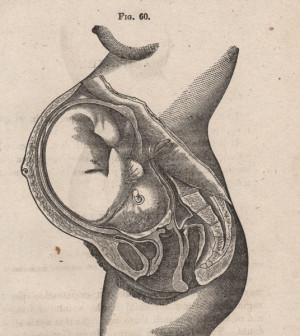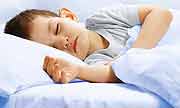- Could Your Grocery Store Meat Be Causing Recurring UTIs?
- Are You Making This Expensive Thermostat Error This Winter?
- Recognizing the Signs of Hypothyroidism
- 10 Strategies to Overcome Insomnia
- Could Artificial Sweeteners Be Aging the Brain Faster?
- Techniques for Soothing Your Nervous System
- Does the Water in Your House Smell Funny? Here’s Why
- Can a Daily Dose of Apple Cider Vinegar Actually Aid Weight Loss?
- 6 Health Beverages That Can Actually Spike Your Blood Sugar
- Treatment Options for Social Anxiety Disorder
Sleep Woes Common Among Troubled Young Children, Study Says


Sleep difficulties, particularly problems falling asleep, are common among toddlers and preschoolers with mental health issues, according to a new study.
“Sleep problems in young children frequently co-occur with other behavioral problems, with evidence that inadequate sleep is associated with daytime sleepiness, less optimal preschool adjustment, and problems of irritability, hyperactivity and attention,” said the study’s leader, John Boekamp, clinical director of the pediatric partial hospital program at Bradley Hospital in Providence, R.I.
However, he said, sleep disorders may be unrecognized and underdiagnosed in young children, particularly when behavioral or emotional problems are present.
The study, published online in Child Psychiatry & Human Development, involved 183 children aged 6 years or younger receiving outpatient treatment for psychiatric problems. The researchers examined the prevalence of sleep disorders among these children and the nature of the sleep problems.
“The most common sleep difficulties reported nationally for toddlers and preschoolers are problems of going to bed, falling asleep and frequent night awakenings. Collectively, these problems are referred to as behavioral insomnias of childhood,” said Boekamp in a hospital news release.
Recognized sleep disorders, particularly sleep onset insomnia, were more common than expected, the researchers found. Overall, 41 percent of children in the study met the criteria to diagnose a sleep disorder.
Sleep problems were most common in kids with disruptive behavior, and attention, anxiety and mood problems, the researchers found.
Early sleep problems could not only be the result of behavioral and emotional problems, but could also contribute to them, the researchers noted.
“Essentially, these young children might be caught in a cycle, with sleep disruption affecting their psychiatric symptoms, and psychiatric symptoms affecting their sleep-wake organization,” said Boekamp. “It is important for families to be aware of how important sleep is to the behavioral adjustment and well-being of young children.”
Sleep problems can complicate treatment for challenging behaviors, such as aggression and attention and mood problems. Daytime sleepiness and fatigue can make these problems even worse, the study’s authors noted.
“This study is a great reminder that it’s critical for mental health providers working with young children and their families to ask about children’s sleep,” said Boekamp.
“Simple questions about children’s sleep patterns, including how long it takes a child to fall asleep at night and how frequently a child awakens after falling asleep, may yield important information that is relevant to clinical care, even when sleep problems are not the primary focus of treatment,” he explained.
More information
The American Academy of Child and Adolescent Psychiatry provides more children’s sleep problems.
Source: HealthDay
Copyright © 2026 HealthDay. All rights reserved.










